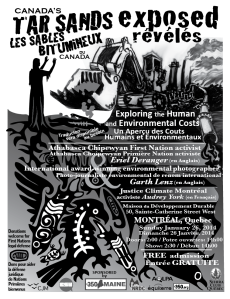Bill McKibben’s latest book, Oil and Honey: The Education of an Unlikely Activist, offers an imaginative way to fight global warming: divestment from oil and gas companies. This may sound like an old idea (think South Africa in the 1980s and the Ozone Action campaign in 2000), but McKibben shows that, given the alarming acceleration of climate change and the futility of current protest strategies, divestment may be the way to go.
Like most good authors on the environment, McKibben makes the impact of man-made climate change real. He reminds us of the unprecedented weather we’ve seen over the last three years (2012 alone saw record-setting temperatures in March, a summer heat wave that wilted crops across the U.S., and the decimation of New York City by Hurricane Sandy in the fall). But it’s his descriptions of nearby phenomena that spook me most. He captures the unprecedented flooding of Vermont in August, 2011: homes and hospitals inundated, “150-year-old covered bridges washing away in a matter of seconds.” He also describes the increased prevalence in the northeast of deer ticks, carriers of lyme disease, which like the warming temperatures. This is bad news for humans, like me, who like to go outdoors, but it’s especially bad for moose, which scientists have found carrying as many as 70,000 ticks each. “The insects were driving them so crazy that they were scratching off their fur,” writes McKibben, and without fur, moose are done for come winter.
While these changes are clearly speeding up, accepted ways of countering climate change seem stuck in neutral. Political lobbying, as McKibben points out, is heavily tilted in favour of fossil fuel companies. And small individual actions or group protests don’t seem to be working either: “There was no way, fighting one lightbulb or pipeline at a time, that we could make a dent in that momentum [of climate change].”
So McKibben is driving a campaign to have colleges and universities divest from Big Oil. Armed with a study that shows that the “’theoretical return penalty’ of excluding fossil fuel stocks . . . was 0.0034 percent, or about as close to zero as one could get,” McKibben says he has helped coordinate 252 campus campaigns on divestment (and his 350.org shows nine institutions have committed to it).
McKibben calls divestment “one of the biggest student movements in many years.” Is this something Vanier should consider?
 (This piece can count as your post on energy or as a 1% bonus on your final grade)
(This piece can count as your post on energy or as a 1% bonus on your final grade)